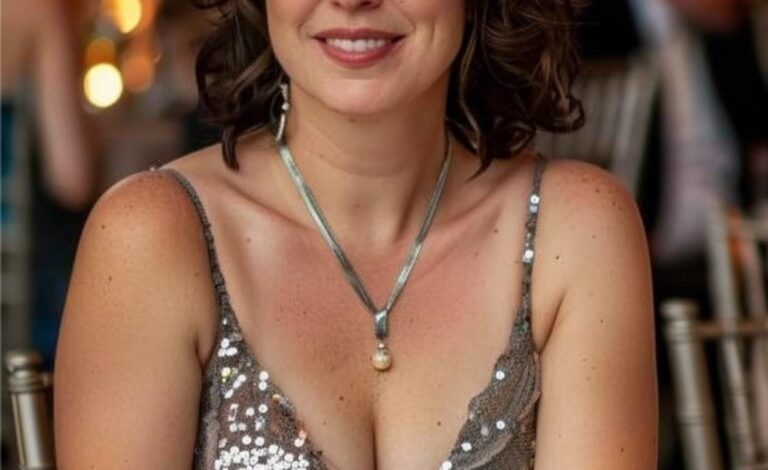
The son was ashamed of his mother, a cleaner, in front of the brides family, but at his wedding, she caused a sensation
Marina stood back, watching her son as he tried on his new suit—a handsome, well-cut ensemble that complemented his tall, athletic frame and dark hair. Tomorrow, her little boy would be married, a thought that both filled her with pride and left her in disbelief. Ilya studied his reflection in the mirror, turning slowly and nodding in approval. “Fashionable outfit,” he remarked to his mother, adding with a satisfied grin, “and the color really makes it look expensive.” Marina’s heart swelled with bittersweet emotion as she quietly agreed, though in her mind she noted the high cost. “I’m glad you like it,” she said, trying to mask her mixed feelings. “I know tomorrow will be an emotional day when I see you all dressed up.”
Ilya abruptly turned away from the mirror, his tone sharpening. “Mom, are you really going to that wedding with us? We agreed you wouldn’t come.”
“Agreed?” Marina echoed, surprised. “I thought you were kidding.”
“What jokes?” Ilya pressed, his voice laced with worry as he paced the room. “Don’t you remember what Vika’s parents are like? The wedding is a gathering of the elite. I’m concerned you’ll be out of place, and I don’t want to feel embarrassed in front of them. Do you want to ruin such an important day for me?”
Sitting beside his mother on the couch, Ilya gently squeezed her hand. “Just imagine how you’d look among those well-dressed ladies,” he continued softly. “My heart would break from the humiliation, and you’d feel awful. Why not come the day after for a quiet celebration—a nice cup of tea or champagne, and you could congratulate us privately?”
The words stung Marina deeply. To hear her own son express such shame over her presence felt unbearable. “Why would I be out of place?” she retorted, determined yet hurt. “I’ve booked an appointment with a fantastic hairdresser, I’ll get my nails done, and I plan to wear a proper dress.”
“What proper dress?” Ilya snapped, clearly frustrated as he glared at her. “That old blue dress isn’t cutting it!”
Realizing that he wanted nothing more than to see her absent, Ilya stood before her, his voice cold and direct. “If you can’t understand subtlety, then let me be clear—I don’t want you at the wedding. I might be here, but I’m ashamed that my own mother, someone who works as a cleaner, would appear and embarrass me in front of Vika’s family. Is that understood?”
Marina felt as if the floor had dropped from beneath her. Shock rendered her speechless as she absorbed his harsh words. Without another word, Ilya grabbed his backpack, adjusted his suit with a practiced air, and marched out the door. At the threshold, he paused and added in a cold tone, “I’m telling you again—don’t come to the wedding. No one there will welcome you.”
Hours passed after Ilya had left. As twilight fell, Marina sat in a stunned silence on the couch, feeling as though the world had gone mute. When she finally switched on a lamp and retrieved an old family photo album from the dresser, memories crashed over her. The worn pages held snapshots of her early life—a small girl with bright blue eyes in a second-hand dress, smiling beside a thin, distant woman who once exuded carefree happiness. Marina recalled that she was only two and a half when her own mother lost custody and disappeared, leaving her to grow up in an orphanage where life was far from easy.
In faded photographs, a ten-year-old Marina with rebellious golden curls stood in a group photo, a reminder of the harsh, grim days in a troubled shelter—where even the educators turned a blind eye to bullying and the cooks were caught stealing food. Those days had been bitter, yet Marina had persevered. She found work as a waitress at a small roadside café called “By the Road.” Although the salary was modest, generous tips and her resourcefulness helped her not only get by but also develop a talent for transforming second-hand clothes into stylish outfits. In one cherished summer memory, Marina recalled sitting on a meadow with a crown of wildflowers, laughing alongside a handsome, dark-haired young man—a moment of pure, unfettered happiness that still made her heart flutter.
It was during that time at the café that fate introduced her to Maxim. On a bustling morning, while she hurriedly balanced trays and served customers, Marina tripped and spilled tomato juice on a sharply dressed man sitting by the window. Mortified, she began to apologize profusely, but he simply smiled and handed her the keys to his car so she could retrieve a replacement shirt from the back. Stas, the café administrator, scrambled to help, and a playful remark about her shift ended up easing the tension. Later that day, as fate would have it, Maxim—a well-known figure, the mayor’s son—returned to the café, his presence causing an immediate stir. He charmed Marina with white roses and an invitation to join him as soon as her shift ended. Though initially bewildered and modestly dressed in old jeans and a plain t-shirt, Marina’s heart warmed at his persistence.
Their connection was immediate, and soon they began to see each other regularly. Maxim, an economics student with a bright future, introduced Marina to his circle of university friends. They spent countless hours together, swimming, barbecuing, and sharing carefree moments that brought a long-forgotten joy into her life. However, as their romance blossomed, obstacles emerged. Maxim’s family—especially his influential and demanding parents—disapproved of the union. Whispers began to circulate around town, and soon the mayor’s son was under intense scrutiny. Rumors reached Marina, culminating in a venomous phone call from Nikolai Borisovich, Maxim’s father, instructing her to break up with him or face severe consequences.
Unable to withstand the mounting pressure, the relationship soon soured. Shortly after Maxim left for an overseas student exchange, Marina’s world turned upside down. Accusations of a significant shortage at the café led to her arrest—a move orchestrated by a corrupt official bribed by the mayor. The ensuing trial was a farce. Despite knowing in her heart that the charges were baseless, the legal system did not easily let her go. She was sentenced to three years in prison, and during her incarceration, she learned she was expecting a child.
Prison was a harrowing experience, and after serving a year and a half, Marina was finally released. With her young son still by her side, she faced a harsh reality—finding work was nearly impossible with a criminal record, and she struggled to provide for her child. Yet, with the help of a kind neighbor, Yakov Ivanovich, who managed to get her son into daycare, Marina pieced her life back together. She took on multiple jobs—cleaning restaurants, washing cars, and sewing in the evenings—never once giving up on her determination to secure a better future.
Over time, Marina managed to save enough to rebuild her life. She transformed her appearance with the help of a beautician, and on the day of her estranged son Ilya’s wedding, she decided to attend despite his stern rejection. Clad in an exquisite blue dress that made her look years younger, she walked confidently into the registry office, creating quite a stir among the guests. As she watched Ilya, now a grown man with a charming bride by his side, Marina’s heart was a mixture of pride, sorrow, and resilience.
During the reception, a tense moment arose when Ilya discreetly approached his mother with a whispered rebuke about her presence at the celebration. Before any further confrontation, Vika—one of the wedding guests—cheerfully invited Marina to join the family’s post-ceremony gathering at a restaurant, symbolizing that perhaps, in time, wounds might heal.
Then, unexpectedly, a tall, well-dressed man intercepted Marina in the crowd. “Marishka, is it really you? What are you doing here?” he inquired. Recognizing him as Maxim, the man began to reminisce, admitting that despite his own hardships and a long-standing separation, he had never stopped thinking about the moments they once shared. Their conversation, filled with both regret and unexpected warmth, turned into an impromptu reunion where old sorrows were briefly put aside.
Ilya, witnessing his mother’s radiant transformation and the unexpected chemistry between her and Maxim, felt a pang of realization. For the first time, he saw his mother not as the humble cleaner he had once scorned, but as a resilient, attractive woman who had sacrificed everything for him. Overwhelmed by a mix of shame and admiration, he found himself reevaluating everything he once believed.
As the evening drew to a close, Marina introduced Maxim to Ilya, who hesitated, then greeted him with cautious curiosity. “It looks like we have a lot to talk about,” Marina said gently, smiling through her tears. “But tonight, let’s celebrate love.”
In that moment, Marina knew that life was full of unexpected turns—painful betrayals, hardships, and even imprisonment had shaped her journey, but they had also prepared her for new beginnings. With her son’s wedding marking a pivotal point in her life, she embraced the possibility of a future where forgiveness, growth, and love could coexist.




